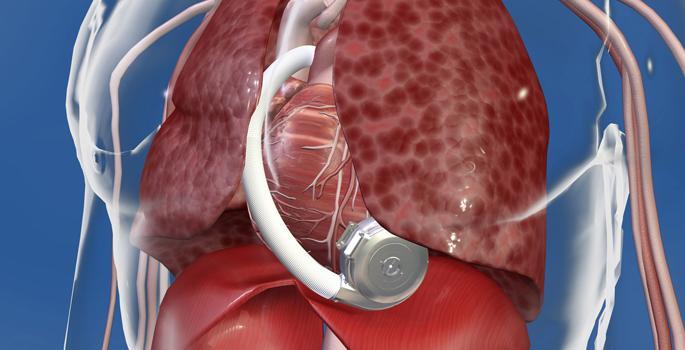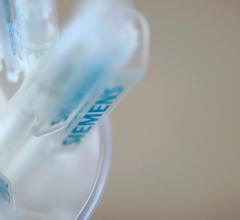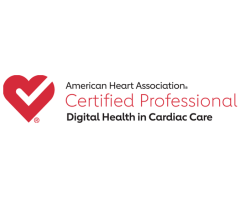
March 1, 2021 — Medtronic is recalling the HeartWare Ventricular Assist Device (HVAD) Pump Implant Kit because the left ventricular assist device (LVAD) device may fail to initially start, restart, or have a delay in restarting after the pump was stopped. These delays or failures to start or restart have occurred during preimplant testing, during the implant, or in a variety of post-implant situations.
If the device has delays or fails to start or restart, this could cause serious patient harm including a heart attack, worsening heart failure, the need for additional procedures and hospitalizations, or death.
There have been 29 complaints about this device issue, which include 19 serious injuries and 8 cases of patients who had a life-threatening event, but recovered without long term effects. Two deaths also have been reported. For these reasons, the FDA has identified this as a Class I recall, the most serious type of recall.
Recalled product includes the Medtronic HVAD Pump Implant Kits for the HeartWare HVAD System. These include kits distributed between Oct. 23, 2017 to April 30, 2020. This includes 157 kits in the U.S.
Medtronic initiated the recall Nov. 19, 2020. The company said the pumps in the recall subset have experienced a 5.2% rate of failing to initially start, restart or experiencing a delay to restart. As of
Nov. 16, 2020, Medtronic said in addition to the two deaths, there were nine cases of critical harm that included cardiac arrest or re-operation for pump exchange. There also were seven cases of major harm, including hospitalization or prolonged implant procedure due to interoperative pump exchange, and eight cases of negligible harm that included a potentially life threatening event in which the patient recovered without long term effects, or a patient experienced a delay in implant.
The FDA said the company sent an Urgent Medical Device Communication Letter to all affected customers Dec. 18, 2020
The HVAD Pump Implant Kit is part of the HeartWare HVAD System, which is used to help the heart continue to pump blood to the rest of the body. The HVAD system is used as a bridge to cardiac transplants in patients who are at risk of death from end-stage left ventricular heart failure, for heart tissue recovery, or as destination therapy (DT) in patients where new transplants are not planned.
Instructions to Providers on What to do in the Recall of the HVAD Pump Implant Kit
On Dec. 23, 2020, Medtronic sent an Urgent Medical Device Communication Letter to all accounts who have previously purchased a Medtronic HVAD Pump. The notice instructed customers to:
• Advise healthcare providers and staff the following points from the current instructions for use (IFU) to avoid unnecessary pump stops:
1. Do not disconnect the driveline from the controller.
2. Do not disconnect both power sources (batteries and AC or DC adapter) from the controller at the same time; one external power source should always remain connected to the controller.
3. Do not exchange the controller unless explicitly directed by a High Priority alarm condition or by a VAD team member.
4. Reinforce the proper response to a [Controller Fault] alarm and [Electrical Fault] alarm. These are Medium Priority alarms unrelated to an immediate pump stop. These alarms will result in the word [Call] in the Controller Display, notifying the patient to call their clinician.
5. Reinforce making good connections of power sources and the data cable in the controller ports.
• Inform patients implanted with one of these identified pumps to contact their Ventricular Assist Device coordinator prior to any controller exchange, and to coordinate performing an exchange of controllers in a clinical setting.
• Decide if a controller exchange is deemed necessary for patients implanted with one of these identified pumps and consider the following:
1.Controller exchanges should be performed under clinician supervision in a controlled environment with immediate ability to put the patient on hemodynamic support. Failure to restart can be fatal.
2. Upon a pump stop, a High Priority [VAD Stopped] alarm will result in the words [Change Controller] or [Connect Driveline] in the Controller Display. Once power and driveline connections are reestablished, if the pump does not restart:
3. Consider power cycling of the current controller or consider a controller exchange. This will allow the restart algorithm to reset and start over. The controller automatically attempts to restart the pump a maximum of 30 times; the [VAD Stopped] alarm begins after five (5) attempts.
4. If the pump still does not restart, proceed with temporary hemodynamic support and pump exchange.
• Schedule a controller exchange prior to the internal controller battery reaching end of life and triggering a [Controller Fault] alarm if a patient’s controller is beyond two (2) years of service.
- Although a [Controller Fault] alarm is a Medium Priority alarm that is not related to a pump stop, proactively scheduling a controller exchange could help avoid a patient reacting to the alarm by exchanging a controller outside of a clinical setting. Per the IFU, patients should call their clinician upon receiving a Medium Priority alarm.
• Review serial numbers in the letter and confirm if patients are still on support.
• Share the letter with all those who need to be aware within organizations or to any organization where potentially affected patients have been transferred.
• Complete a Physician Confirmation Form (enclosed with the letter) and return via email to [email protected].
Read the Medtronic Urgent Medical Device Communication
Related HVAD Content:
Class I Recall Issued for Medtronic HeartWare HVAD Pump
Medtronic HeartWare HVAD System Approved for Destination Therapy
FDA, Medtronic Expand HeartWare VAD Recall, Announces New Recall of VAD Component
FDA Announces Two HeartWare HVAD System Class 1 Recalls
New Heart Assist Pump Allows Minimally Invasive Approach at Vanderbilt Heart and Vascular Institute


 November 14, 2025
November 14, 2025 









